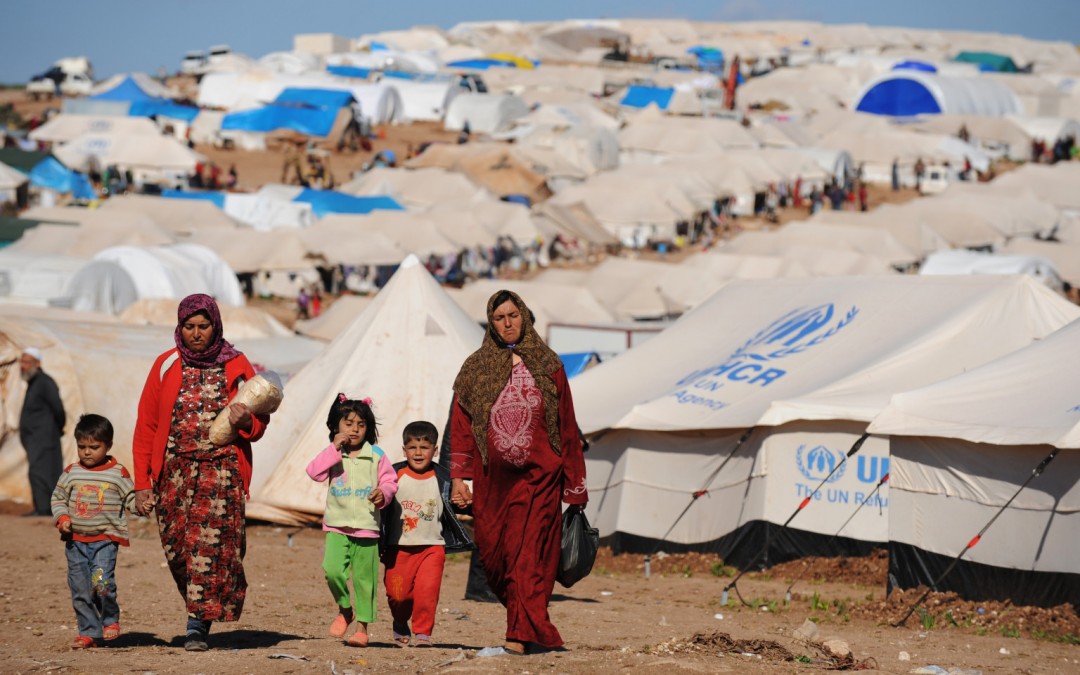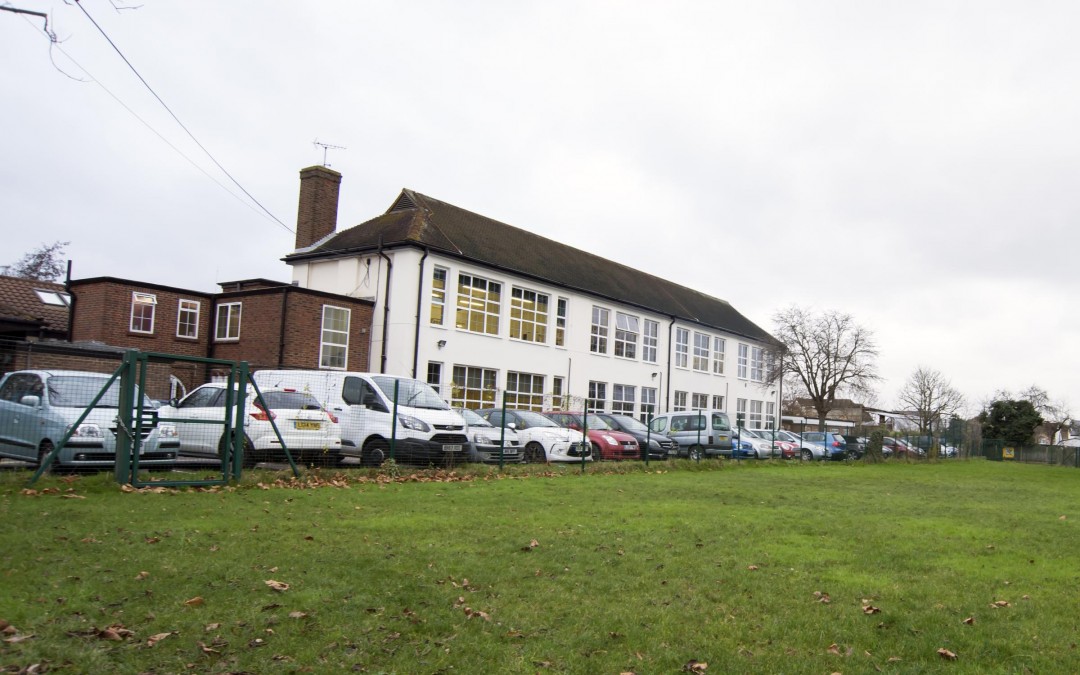
by Paul Scully | Sep 13, 2015 | News, News |
Friday’s debate on the Assisted Dying Bill was thoughtful, emotional and demonstrated Parliament at its best. The quality of speeches on both sides of the arguments was extremely good. I have had a lot of correspondence on the matter from those in favour and those against with powerful, often personal cases cited to support their views. I have always sympathised with the need to change the law but recognise that safeguards need to be tight and comprehensive. Cases like Tony Nicklinson who suffered from ‘locked-in’ syndrome informed my approach to this subject in general terms, although this Bill would not have covered his situation as it only related to terminally-ill patients.
As I listened to the debate, my leaning towards support grew firmer and I voted for the Bill, though I ended up on the losing side as the Bill was rejected by 300 votes to 118. In order to inform those who wrote to me as to why I voted the way I did, I thought it would be appropriate to detail my thoughts on a number of points raised in the debate:
Self-determination: This is my prime point of reference. If I was suffering at the end of my life, I would hate to think that the State would get involved to a point probably beyond any other time in my life, keeping me alive against my will. Twenty-six years ago, I saw my father die over a year from mesothelioma, contracted from asbestos inhaled whilst an apprentice on the docks in Rangoon and Glasgow. Towards the end he was doped up on morphine which he fought against at every stage because he hated to lose control of his senses. He fought for every breath, literally. He wanted to live, wanted to recover and go back to work. He would not have used the powers in this Bill had they been available to him at the time but it is clear from other examples including the moving stories from a constituent of Paul Flynn and Madeleine Moon, that others would. I believe that they should be able to do so. As Jim Fitzpatrick, a former fireman, said: “I do not know how many people here have seen the terminal stages of asbestosis or mesothelioma. Not only is it not pretty, but it is damned ugly, and if that is what lies in store for me, I want to control my own exit.”
Safeguards: The Bill covers only a narrow area. It only covers those suffering with a terminal illness, defined as an “inevitably progressive condition which cannot be reversed by treatment as a consequence of that terminal illness, is reasonably expected to die within six months.” Two doctors need to sign off the request and a High Court judge must be satisfied that the applicant has a “voluntary, clear, settled and informed wish to end his or her own life” and “the capacity to make the decision to end his or her own life.” This was seen as inadequate by those arguing against the Bill. They seem appropriate to me. The detail of this could have been argued at the subsequent Committee Stage when further safety checks could have been considered. Some MPs considered the six months to be impossible to determine with any accuracy. It’s true that doctors cannot be sure to the nth degree as to when someone will die. People may recover to live a much longer life. It is also true to say that they may go downhill and die much sooner. We can only work with the best information available to us and it should be up to us as to whether we accept that advice. Some were concerned about the ability of two doctors to make an informed view overall. To my mind, the two doctor rule reflected the requirement in the Abortion Act, another ethical medical change first considered via a Private Members’ Bill and controversial at that time.
Sir Keir Starmer made an important contribution to the debate as the former Director of Public Prosecutions who drew up the guidelines currently used when considering the prosecution of such cases. He detailed his considerations and some of the cases that informed him in how to ensure that those guidelines struck a sensible balance in a lengthy but factual speech. He made a key point towards the end of his speech saying: “My experience is that there are two inherent limitations in the guidelines that I issued. For the reasons I have explained, my understanding of the constitutional role of the DPP was that doctors and medical practitioners are more likely to be prosecuted. The first limitation is that, as a result, those who have reached a voluntary, clear, settled and informed decision to end their lives can now be confident of the compassionate assistance of loved ones without exposing them to the law, but they cannot have the assistance of professionals. They can have amateur assistance from nearest and dearest, but they cannot have professional help in fulfilling their desire unless they have the means and the physical ability to get to Dignitas. One of the points that Debbie Purdy made to the judicial committee was that she wanted to live her life for as long as possible, although she wanted to end it at her own choosing, and that if she was forced to go to Dignitas she would have to end her life earlier because she would lose the physical means of getting there.”
The primary purpose of those speaking against the Bill was to preserve life. However at the moment, there are no checks in order to do so, just retrospective guidelines after death, which still involve the deathbed as a crime scene and the nearest and dearest treated as a suspect. A number of MPs raised the matter of ‘double effect’, namely medication that will alleviate suffering, though with the additional effect of shortening their life. There are no external checks at the time of treatment, just a review after death which will not have any effect on the person who has died. Opponents of the Bill were concerned that 14 days was not sufficient for a High Court judge to consider if the patient was being coerced. I would argue that the DPP would have even more difficulties in ascertaining this after the event.
Sanctity of life: Many of the representations that I received from constituents opposing the Bill were initiated by faith-based campaign groups. I respect the view of the many MPs and constituents who argued from a position of deep faith about the sanctity of life. However I agree with Crispin Blunt that I would not want the Church determining my death. Assisted Dying would not have become compulsory under this Bill and it would not have been for everyone. I would have liked the freedom to choose whereas others would be driven by their faith to pass at a time of God’s choosing.
Archbishop Desmond Tutu, in outlining his reasons for supporting Assisted Dying asks what does it mean to be alive? He tells a story about the issues of keeping Nelson Mandela alive. “What was done to Madiba (Nelson Mandela) was disgraceful. There was that occasion when Madiba was televised with political leaders, President Jacob Zuma and Cyril Ramaphosa. You could see Madiba was not fully there. He did not speak. He was not connecting. My friend was no longer himself. It was an affront to Madiba’s dignity.”
The view of Healthcare professionals: To my mind, the strongest argument against the Bill were put forward by three medical doctors, Dr Liam Fox, Dr Sarah Wollaston and Dr Philippa Whitford who brought their professional experience to bear suggesting the fact that this proposed change fundamentally changed the role of the doctor from someone who would do no harm, opening a Pandora’s Box, as Liam Fox described it. The discredited Liverpool Care Pathway has already shown how healthcare professionals have been able to hasten people’s death albeit through denying food and water, leaving dehydrated patients to suck water from sponges, rather than through a controlled, swift process as afforded by this Bill.
Many argued that rather than considering assisted dying we should be improving palliative care. I don’t see the two as mutually exclusive. As stated, the procedures included in this Bill would have only been used by a few people. Palliative care has been improving significantly since my father died in 1989 and long may that continue. I look forward to those arguing for better palliative care in this debate bringing those points forward in wider health debates. I was struck by the contribution of Sarah Champion in support of the Bill who had run a hospice before being elected to the House. It was suggested that assisted dying would reduce the incentive to find treatments for illnesses. I could not see how this would be the case.
Slippery slope: Several disability charities ran campaigns against the Bill in the belief that it would work against those with a disability. Others described the Bill as crossing the Rubicon. Any further changes to the qualification to who could end their life would have had to come back to the House for further debate. That would include cases of locked-in syndrome as I mentioned at the beginning. I didn’t see that as reason enough to kick this proposed change into the long grass against the popular wishes of the public. Disabled people would not be able to take their life unless they were terminally ill, where they would be treated as any able-bodied person would.
The largest poll, conducted by Dignity in Dying had support at 80% for the Bill. The last independent poll had support at 70%, still pretty sizeable. The debate was wide-ranging, extremely informative but I believe the conclusion reached by the House was the wrong one. Further stages of consideration of the Bill would have teased out some of the finer points of argument and concerns and there would have been chance to reject the Bill further down the line if required. I am aware that in voting for the Bill, I would have voted in a way that is totally anathema to many constituents. Others, possibly the majority, will welcome my approach. Ultimately I am content that I considered the arguments and details of the debate and voted with my conscience. Both sides of the argument wanted a vote to test the view of politicians. They have it; a resounding support of the status quo, a finely balance guideline-based approach to the end of life choices for terminally ill patients with little certainty at an incredibly difficult time for those left behind.

by Paul Scully | Sep 13, 2015 | News, News |
The photograph of Aylan Kurdi’s lifeless body on a beach in Turkey brought home to many people what has been happening in that region for many months. Some 10,000 children are estimated to have died in the Syrian civil war and the rampage of ISIS throughout Iraq and Syria has led to the deaths of many more. We need to make sure our response is balanced and effective. I told the Sutton Guardian earlier this week:
Pictures of the child lying dead on a Turkish beach are harrowing. We must keep reviewing the numbers of refugees that we bring to the UK but the solution lies in tackling the problem at source. Many children are being killed and orphaned away from the cameras in Syria. Working with our international partners for a lasting peace there, though not easy whilst Syria barely remains a single nation state, must remain the focus. The government is undertaking its biggest humanitarian initiative ever at a cost of £900m to help people fleeing for their lives. The UK has a proud record for helping refugees. Our approach needs to balance the need to support people in desperate need whilst not encouraging the pernicious work of human traffickers.
Since then the Prime Minister has confirmed that we will welcome 20,000 refugees taken from the camps around Syria and add another £100m to our aid efforts in the region. We have already taken in over 5,000 Syrian refugees since the conflict began (the 216 figure that is mentioned by those making political capital out of the crisis relates to a specific project, the Syrian Vulnerable Persons Relocation scheme).
That won’t be enough for some people. It’ll be too many for others. However, as with the immigration debate in general, a balance has to be struck, making sure we fulfil our moral obligation as a caring country and the ability to absorb refugees into our communities. Germany is currently wrestling with issues and community tensions after its big offer to take in 800,000 refugees has been taken up by many thousands so far.
The UK is right to take another tack. Taking people directly from places in refuge in the region is important in order not to encourage them to make the dangerous journey to Europe. Creating a disparity between those left behind in squalor and dangerous surroundings and those who have the money to pay a human trafficker and who have survived the treacherous boat trip runs the very real risk of making the risk of crossing to Europe a risk worth taking in the minds of those in camps.
For the 20,000 that will come we need to be prepared. Our existing domestic resettlement mechanisms provide a basis for an increase in numbers as soon as possible, and the government is already working with existing partners to ensure they stand ready to receive the increased numbers. Over the coming months, government will work with local authorities, the UNHCR and others to put in place the full structures to ensure the successful delivery of the expansion the Prime Minister has announced. Large numbers of new and often vulnerable refugees will require a range of services, including health services, education and housing. The Home Secretary and the Communities Secretary, will now work intensively with local authorities and the devolved administrations to put in place the necessary arrangements to house and support the refugees that we resettle.
The UK’s international leadership also extends beyond funding and resettlement. Ensuring that aid agencies can reach those most in need is key. That is why we lobbied hard and successfully for the renewal of UN Security Council Resolution 2165 (now UNSCR 2191) authorising the UN to deliver aid across borders to people in need inside Syria without the consent of the Assad regime. This has allowed the UN to deliver aid to people previously cut off from support. It is important for the government to continue to explore every avenue for reaching those who are still not getting help as a result of the conflict and the appalling behaviour of ISIL and the Assad regime.
Parliament is likely to face a difficult decision in the next month or two. How far do we get involved in solving the problem at source to stop the conditions that are causing such a mass displacement of people – do we involve ourselves in bombing in Syria? There is a long way to go before we get to that point. In order to make a decision, I would need two questions answered. How badly are we being hampered by having an arbitrary line that we cannot cross, a line that is not respected by ISIL? And what will follow if and when ISIL are defeated? Our experience in Iraq and the region shows that we need to have a comprehensive plan for the peace as well as the war. Failing to do so creates just another vacuum for others to occupy, so dictators were topped by Al-Qaeda who were topped by ISIL as enemy no.1.

by Paul Scully | Jul 21, 2015 | News, News |
Yesterday I joined parents of children at Cheam Common Junior and Infant Schools at a meeting where it was confirmed that Cheam Common Junior would convert to an academy sponsored by Cheam Park Farm Junior School. There are still some details to work out before the Academy Order is issued but I hope that this is the start of a brighter future for the school.
Text of letter to parents from LEO Academy Trust (the name of the Multi Academy Trust led by Cheam Park Farm Junior School)
“Dear Parents
Staff and Governors at Cheam Park Farm Junior School were delighted to receive the news on Friday, that we had been approved by the Regional Schools Commissioner as the academy sponsor for Cheam Common Junior School. Both schools already have a close working relationship and we look forward to building on this partnership together. An Academy Order will now be issued by the Department for Education (DfE) and we await further information from the DfE Project Lead in September.
Due to prior work and holiday commitments, we are unfortunately unable to join you at your meeting this morning. We look forward to meeting you all in September and working with staff, governors, pupils and parents at Cheam Common Junior School.
As an academy, Cheam Common Junior will become part of the LEO Academy trust. LEO is a new Multi Academy Trust developed by Cheam Park Farm Junior Academy Trust. The past few years have been an exciting period of change for our education system in England. Schools are now empowered to support each other to improve both outcomes for their own pupils and to drive performance across the wider school system. At the LEO Academy Trust, we feel passionately that supporting other schools is the right thing to do. The practice that makes one academy in our Trust successful, and helps our pupils to achieve their potential, also helps to improve the chances of more pupils in other academies and schools. This is true of both academies in our Trust and those academies and schools beyond.
A key principle of the LEO Academy Trust is that each academy maintains their own character. For example, each LEO academy school is encouraged to develop a specialism which can be shared with others within and beyond the Trust. All academies will retain their own uniform and identity, which is usually well known and respected in their local communities. All of our academies are also led by strong Leadership Teams, supported and challenged by an effective Local Governing Body. Their work is entirely focused on the development of their own academy. We will share full details about the LEO Academy Trust with parents next term. In the meantime we wish you all a good holiday and look forward to meeting you all next term.
Yours sincerely
Mrs J Saddington, Chair of the LEO Academy Trust,
Mr P Hedger, Executive Headteacher, LEO Academy Trust”

by Paul Scully | Jun 29, 2015 | News, News |
Last week I had the pleasure of visiting Cheam Park Farm Junior School where pupils shared with me three boxes of messages to pass onto the Prime Minister. They are supporting the Send My Friend to School campaign which seeks greater access to a free education for children around the world. 58 million children around the world are missing out on an education. We have a role to play for a number of reasons.
Firstly, as one of the world’s biggest economies with excellent educational opportunities we have a moral responsibility to help those less fortunate than us. However there are key benefits to this country. Allowing children to develop skills and the ability to take opportunities in their own country reduces the need to migrate elsewhere and retains that skilled labour which will help build that nation’s economy. This will also give us more avenues to trade with that country. One of the first things dictatorships do is to run down the education system which makes it far easier to subjugate the people. Eighty years ago, Burma had one of the best educated population in that region. This has been allowed to wither over time, denying young people a future and making them dependent on the state. Probably the best known example of seeking to deny an education is that in Pakistan when the Taliban shot Malala Yousafzai on her way to school.
The children in Cheam Park Farm were really inspired by the work that they had done on the project, realising the privilege that they enjoyed of a great start in life through school. I haven’t had a chance to present the boxes to the Prime Minister as you might imagine with the incredibly difficult news that is coming from a number of fronts but I did get a chance to raise their campaign in Parliament, speaking to the Leader of the House:
Paul Scully (Sutton and Cheam) (Con): At their school assembly yesterday, the pupils of Cheam Park Farm junior school gave me several messages in support of the Send my Friend to School campaign. May we have a debate to discuss how this Government can help in the objective of making free education available to more children around the world?
Chris Grayling: I commend the teachers at Cheam Park Farm junior school for their work in raising awareness and helping their pupils to raise their concerns.
My hon. Friend can look those pupils in the eye and say that this Government have an excellent record in providing financial support through our international aid budget to those parts of the world where young people do not have adequate access to education or, indeed, other basic needs in life, such as clean food and water. We are doing everything we can internationally to help the development of those communities, and those young people should feel proud to be part of a country that is doing its bit in the world.
I’m pleased that the Leader of the House recognised the teachers and pupils for their work in this area and I’ll continue to help push their message to those that need to hear.

by Paul Scully | Jun 18, 2015 | News, News |
The EU Referendum Bill cleared its committee stage today. A number of amendments including changing the voting age to 16 were defeated. Whatever your position on votes for 16 (I’m not in favour), it is not appropriate to rush consideration of this important issue just to fit in with a single vote. It’s far better to consider the matter separately and carefully. Sticking as close as possible to the existing General election register is the most appropriate format for this important constitutional vote.
However, in the days before Tuesday’s vote I had my first occasion to stop and think as to whether I would vote against the government. As the Bill is currently worded, purdah period just before the referendum would not be in place. Let me explain. In the lead up to General elections, the government does not publish any decisions, comments or figures which may be controversial or be seen to be helpful to one or more political parties. In Sutton, the publication of a decision to allow a building in Worcester Park to be used as a mosque was delayed until the week after the election. If that had come out before, it may have adversely affected the incumbent MP more than me. In the case of the referendum, having the machinery of government producing figures that would help David Cameron secure a vote to remain in the EU would rightly, not be seen as a free and fair referendum.
The government’s reasoning for suspending this rule is that the EU is so pervasive, stopping the government machinery for a month would be incredibly difficult. I understand that. However I would rather see some explicit wording that allows government to continue but heavily limited in what it can publish. I was pleased that the government listened to me and many of my colleagues. There is another stage, the Report Stage, which will come in September where a new amendment can be considered and the government has pledged to go away and come back with new wording. Therefore I was content to vote with the government in anticipation of that change.
This is one of those things that sounds a bit niche, but can be so important come the referendum, so it is better to get right now.





